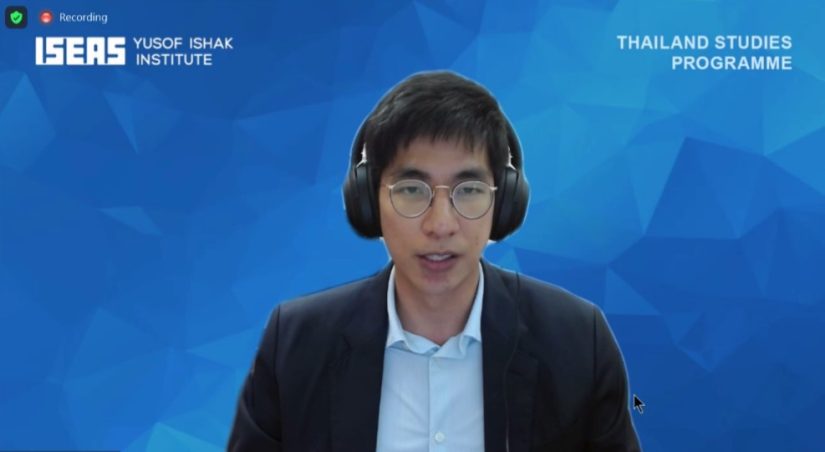
Yogyakarta, June 16th 2023─Entering the political year in Indonesia to welcome the 2024 election, the Department of Politics and Government (DPP) of UGM together with Global Campus Asia-Pacific, and PolGov UGM held a webinar entitled “The Future of Democracy, Progressive Politics in Southeast Asia: Move Forward Party in Thailand and a comparison with Indonesia” on Friday (16/6) online via Zoom Meeting. The speakers who filled in for the activity were Napon Jatusripitak (Political Observer and Researcher at ISEAS Thailand) and Dian Septi Trisnanti (House of Representatives Legislative Candidate from the Indonesian Labor Party) moderated by Amalinda Savirani (DPP UGM Lecturer). This activity discusses the Move Forward Party which has succeeded in winning the election in 2023 and a comparison with the Indonesian Labor Party, both of which are called progressive parties.
The Move Forward Party (MFP) is in the international conversation for its victory in Thailand’s 2023 elections by beating military-backed parties that have been in power for nearly a decade. Nipon explained that the MFP’s significance was their platform which focused on structural reforms related to reducing military involvement in politics and the introduction of decentralization.
“In addition, the MFP also limits the power of the oligarchs and business conglomerates,” said Nipon.
In Nipon’s observations, voters in the MFP party showed that there was support for the changes offered by the MFP party, both in terms of political, economic and social progress. Nipon also highlighted that the use of social media by the MFP had a significant impact on the positive correlation between their supporters and the political figures proposed. Nipon added that the MFP’s political figure, namely Pita Limjaroenrat, was able to become a figure who represented the younger generation with her charisma and skill when appearing in various media.
Meanwhile in Indonesia, in the 2024 election the Indonesian Labor Party (Partai Buruh Indonesia/PBI) is trying to become a candidate for a seat in the House of Representatives of the Republic of Indonesia (DPR RI) after their long journey since 1998. Amalinda said that PBI needed around 4% or seven million voters to secure their seats at the national level.
According to Dian, PBI has had a discourse to intervene in electoral politics since 1998 by building alternative political parties, becoming candidates by joining various political parties personally and becoming candidates through the Labor Go Politic program. Dian added that in this intervention there were various challenges ranging from money politics, oligarchic power, fragmentation of the labor movement, weak labor organization, and the need for broad alliances to support the political organizing of the working class.
